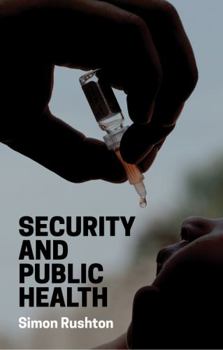Security and Public Health
Select Format
Select Condition 
Book Overview
For most Western governments, defending against the threat of infectious disease is now an accepted national security priority. Deciding what resources and policies to put in place to protect populations from pandemics like HIV and Ebola, however, involves difficult political choices that inevitably lead to trade-offs with other major interests and commitments. How can we get these decision right? And what are we prepared to sacrifice to achieve better health security?In this book, Simon Rushton explores the politics of pandemics in the contemporary world. Looking back over three decades of public health, he traces national and international efforts to tackle infectious disease, focusing in-depth on three core areas in which securitization has been particularly successful: rapidly spreading pandemic diseases, HIV/AIDS; and man-made pathogenic threats, such as biological weapons. Three central problems raised by common responses to disease as a security threat are then examined: the impact upon individuals and civil liberties; the tendency to treat the symptoms and not the underlying causes of disease outbreaks; and the types of disease deemed worthy of global attention and action. Arguing against a tendency to treat global health security as a technical challenge, the book stresses the need for a vibrant, and even confrontational, political engagement around the implications of securitizing public health.
Format:Paperback
Language:English
ISBN:1509515895
ISBN13:9781509515899
Release Date:June 2019
Publisher:Polity Press
Length:240 Pages
Weight:0.65 lbs.
Dimensions:0.6" x 5.4" x 8.4"
Customer Reviews
0 rating





